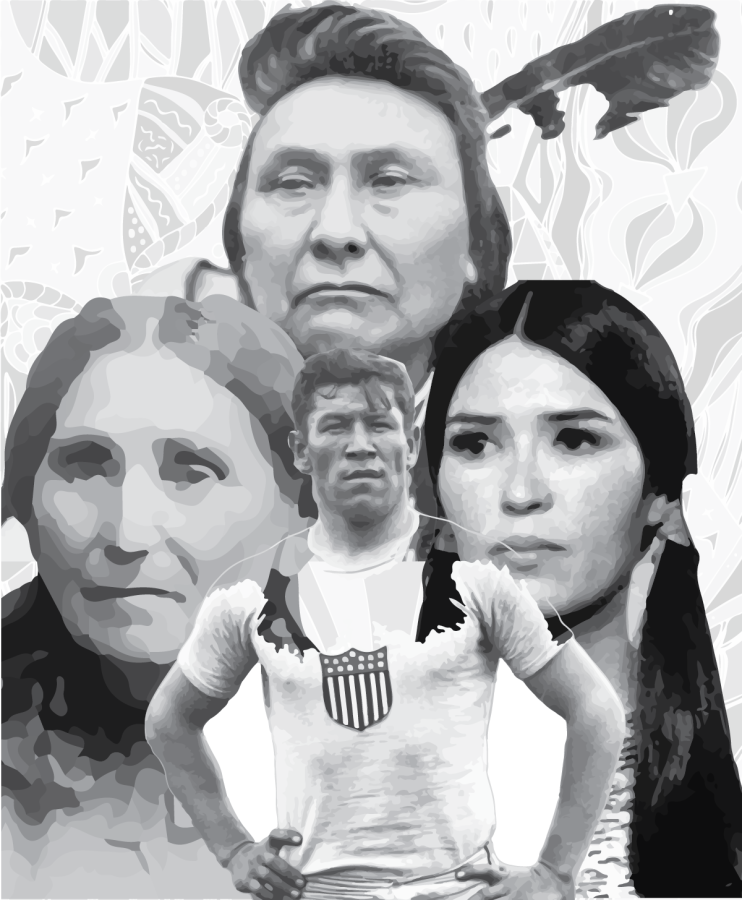Celebrate Native American Heritage Month with these stars
November 8, 2021
Unlike the appropriated fragments of Native American culture the media often misrepresents, Native American culture is a mixture of diverse, traditions and beliefs grounded in community.
November is National Native American Heritage month. This month recognizes the heritage of Native Americans, Alaska Natives, Native Hawaiians and Island communities.
Let us use this opportunity to recognize some of the many icons that have contributed immensely to American history.
Chief Joseph
Chief Joseph, also known as Heinmot Tooyalakekt, was a Nez Perce leader of the tribe called the Wallowa band of Nez Perce, native to the Wallowa Valley in Oregon. He was a powerful advocate for indigenous Americans’ right to stay on their homeland. Although the Nez Perce tribe were forcibly removed from their native land in 1877, Chief Joseph is remembered for his fearless protection of his tribe and his memorable “I Will Fight No More Forever” speech of surrender in October 1877.
Susan La Flesche Picotte
Originally from the Omaha tribe of Nebraska, Le Flesche Picotte took the phrase “pioneering woman” to a whole new level when she became the first indigenous person to earn a medical degree. She earned her medical degree at the Women’s Medical College of Pennsylvania in Philadelphia where she graduated first in her class in 1889. She demonstrated her commitment to developing her community by going back to the Omaha reservation to treat thousands of people. She was the first person to build a private hospital on a Native American reservation.
Jim Thorpe
Imagine being called the “Greatest athlete in the world” by King Gustav V of Sweden. That was the reality of Jim Thorpe when he won the decathlon and pentathlon at the 1912 Olympics in Stockholm. A member of the Sac and Fox Nation, Thorpe became the first Native American to win a gold medal for the U.S. in the Olympics. He was voted “The Greatest Athlete of the First of the Century” by the Associated Press and became a charter member of the Pro Football Hall of Fame. While playing for the Bulldogs in 1920, he was named the first president of the American Professional Football Association. Despite the ups and downs of Thorpe’s life, he represented Native Americans and served as an inspiration in the sports industry.
Sacheen Littlefeather
From the White Mountain Apache tribe and the Yaqui tribe of Arizona, actress and activist Sacheen Littlefeather is best known for giving one of the most controversial and memorable political speeches in Academy Awards history. Littlefeather, together with Marlon Brando, strategically brought awareness to the siege at Wounded Knee in 1973. She appeared on the stage of the 45th Academy Awards fully dressed in a traditional Apache dress to denounce the stereotypical representation of indigenous people in film and television. She went on to help create the National American Indian Performing Arts Registry.



